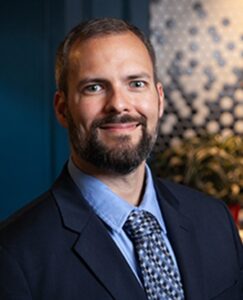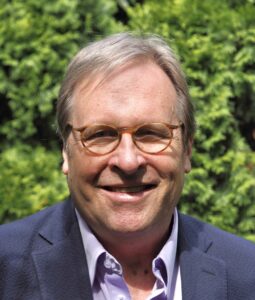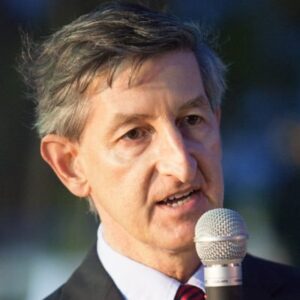Past Speakers
James Bosworth
December 9, 2024
Topic: Mapping Latin America's Current Politics
James Bosworth is the founder of Hxagon, a company that provides political risk analysis and bespoke research in Latin America. With over 20 years of experience researching and writing about Latin America, he assists financial institutions, investors, and analysts at corporations operating throughout the Western Hemisphere understand current events, potential scenarios, and risks to monitor. Bosworth is the author of the Latin America Risk Report newsletter and has a weekly column in World Politics Review. He is a certified Superforecaster for Good Judgment, Inc. and a Global Fellow for the Woodrow Wilson Center’s Latin America program.
Substack: Latin America Risk Report
Articles: World Politics Review
Clark Adams
November 4, 2024
Topic: Defense Diplomacy in Central Asia
Clark Adams served as the Director for Central Asian Affairs in the Office of the Under Secretary of Defense for Policy from January 2007 until his retirement in February 2024. He and his team were responsible for the management of US defense relations with Kazakhstan, Kyrgyzstan, Tajikistan, Turkmenistan, and Uzbekistan. In spring 2008, he was temporarily detailed to the National Security Council to serve as the Director for Central Asian Affairs, where he was responsible for all matters related to US relations with the five Central Asian states.
Previously, Mr. Adams held the position of Director for US Capabilities Development for the Deputy Assistant Secretary of Defense for Stability Operations, where his portfolio included implementing the US Department of Defense (DoD) Directive on “Military Support to Security, Stabilization, Transition, and Reconstruction Operations” and providing Defense Department support to the 2005 national security presidential directive on irregular warfare and counterinsurgency. Mr. Adams also held the position of Deputy Director in the DoD Nonproliferation Policy office. In this role, he was the Office of the Secretary of Defense Representative to the Missile Technology Control Regime, Nuclear Suppliers Group, and the Australia Group on Chemical & Biological Weapons and worked on regional issues such as North Korean missile proliferation, Chinese nonproliferation controls, and strategic cooperation with India.
His earlier government experience includes security assistance and foreign military sales, weapon systems export policies, international defense cooperation and intelligence. He also was a research assistant at the Center for Strategic and International Studies.
Mr. Adams has an MS in National Security Strategy from the National War College, an MA in International Relations from The Pennsylvania State University, and a BA in Economics and Political Science also from Pennsylvania State University.
Jeremy Konyndyk
October 15, 2024
Topic: Refuge At Risk: Can Humanitarian Law Survive 21st Century Geopolitics?
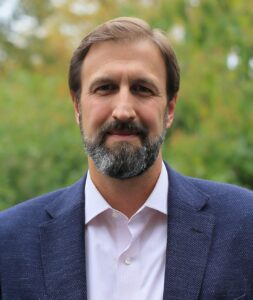 Jeremy Konyndyk is president of Refugees International. A committed humanitarian advocate and seasoned emergency operator, he has served in senior appointments in two U.S. administrations and in a range of U.S. and overseas NGO leadership positions.
Jeremy Konyndyk is president of Refugees International. A committed humanitarian advocate and seasoned emergency operator, he has served in senior appointments in two U.S. administrations and in a range of U.S. and overseas NGO leadership positions.
Prior to joining Refugees International, Jeremy served in the Biden administration as USAID’s lead official for COVID-19. He oversaw USAID’s multi-billion-dollar COVID-19 assistance portfolio, led the design and implementation of the administration’s Global VAX initiative, and coordinated the U.S. government’s global donations of hundreds of millions of vaccine doses. He later served as the administration’s lead official for the global MPox response. He also served on the Biden-Harris transition teams for the Departments of State and Health and Human Services.
From 2013–2017, Jeremy served in the Obama administration as the director of USAID’s Office of U.S. Foreign Disaster Assistance (OFDA), where he led the U.S. government’s response to international disasters. He managed a large global team with annual resources of more than $1.4 billion, responding to crises including the Ebola outbreak in West Africa, the 2016 Ethiopia drought, conflict in Northern Nigeria, the Nepal earthquake, the Iraq crisis, Typhoon Haiyan in the Philippines, resurgent conflict in South Sudan, and the war in Syria, among other crises. He also led the Agency’s preparations for the 2016 World Humanitarian Summit.
Between his administration appointments, Jeremy worked from 2017–2020 as a senior policy fellow at the Center for Global Development, focusing on humanitarian response and pandemic preparedness research. He developed and led CGD’s “Rethinking Humanitarian Reform” initiative, exploring how the humanitarian system could meaningfully shift power and influence toward crisis-affected populations – and why it has traditionally failed in its commitments to do so.
Jeremy has worked extensively in the humanitarian NGO sector, serving as a country director in West Africa and East Africa with American Refugee Committee (now Alight), and as a policy director in Washington, DC with Mercy Corps. He began his career in the Balkans, working on the response to the 1999 war in Kosovo. He also worked with the U.S. Department of State’s Bureau of Population, Refugees, and Migration.
He is currently a member of the World Health Organization’s high level Independent Oversight and Advisory Committee, which oversees the agency’s Health Emergencies Programme and advises the WHO Director-General. He has served as the U.S. representative to the board of Gavi, the Vaccine Alliance, and as the U.S. representative and chair of the OCHA Donor Support Group (ODSG).
He lives in Takoma Park, Maryland with his wife, two sons, and dog, and enjoys baking, traveling, and triathlons.
John Lee
September 9, 2024
Topic: Indo-Pacific Security
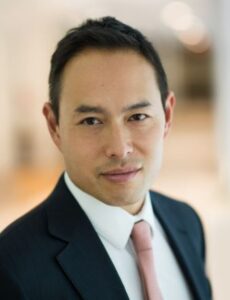 John Lee is a senior fellow at Hudson Institute. He is also a senior fellow (non-resident) at the United States Studies Centre and adjunct professor at the University of Sydney.
John Lee is a senior fellow at Hudson Institute. He is also a senior fellow (non-resident) at the United States Studies Centre and adjunct professor at the University of Sydney.
From 2016 to 2018, he was senior national security adviser to Australian Foreign Minister Julie Bishop. In this role, he served as the principal adviser on Asia and for economic, strategic, and political affairs in the Indo-Pacific region.
Dr. Lee was also appointed the Foreign Minister’s lead adviser on the 2017 Foreign Policy White Paper, the first comprehensive foreign affairs blueprint for Australia since 2003 and written to guide Australia’s external engagement for the next ten years and beyond.
He has held adjunct professorships at the Australian National University and University of Sydney. He is one of the foremost experts on the Chinese political economy and on strategic and economic affairs pertaining to the Indo-Pacific.
Dr. Lee’s articles have been published in leading policy and academic journals in the United States, Asia, and Australia.
He received his master’s and doctorate in international relations from the University of Oxford and his bachelor of laws and arts degrees (first class, philosophy) from the University of New South Wales.
He is based in Sydney, Australia.
Steven Koonin
August 13, 2024
Topic: The Realities of Climate and Energy
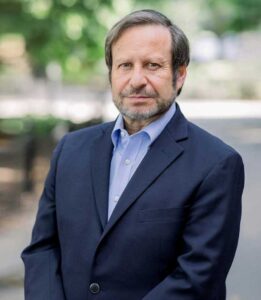 Steven Koonin joined New York University Stern School of Business as a Professor of Information, Operations and Management Sciences in September 2012. He is also Director of NYU’s new Center for Urban Science and Progress (CUSP).
Steven Koonin joined New York University Stern School of Business as a Professor of Information, Operations and Management Sciences in September 2012. He is also Director of NYU’s new Center for Urban Science and Progress (CUSP).
Professor Koonin was confirmed by the Senate in May 2009 as Undersecretary for Science at the U.S. Department of Energy, serving in that position until November, 2011. Prior to joining the Obama Administration, he was BP’s Chief Scientist, where he was a strong advocate for research into renewable energies and alternate fuel sources. He came to BP in 2004 after almost three decades as Professor of Theoretical Physics at the California Institute of Technology, serving as the Institute’s Vice President and Provost for the last nine years. He most recently held a position at the Science and Technology Policy Institute of the Institute for Defense Analyses in Washington, DC.
Professor Koonin is the recipient of numerous awards and honors, including the George Green Prize for Creative Scholarship at Caltech, a National Science Foundation Graduate Fellowship, an Alfred P. Sloan Foundation Fellowship, a Senior U.S. Scientist Award (Humboldt Prize) and the Department of Energy’s Ernest Orlando Lawrence Award. He is a Fellow of several professional societies, including the American Physical Society, the American Association of the Advancement of Sciences, and the American Academy of Arts and Sciences, and a member of the Council on Foreign Relations and the U.S. National Academy of Sciences.
Professor Koonin received his B.S. in Physics from the California Institute of Technology in 1972 and his Ph.D. in Theoretical Physics from MIT in 1975.
Dr. Elizabeth Cameron
July 29, 2024
Topic: National Security in an Age of Pandemic Threats
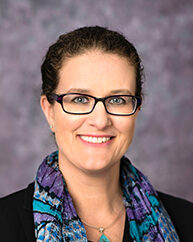 Dr. Elizabeth (Beth) Cameron is a Professor of the Practice and Senior Advisor to the Pandemic Center at the Brown University School of Public Health. She also serves as a senior advisor for global health security at the U.S. Agency for International Development and is a Practitioner Senior Fellow of the Miller Center at the University of Virginia.
Dr. Elizabeth (Beth) Cameron is a Professor of the Practice and Senior Advisor to the Pandemic Center at the Brown University School of Public Health. She also serves as a senior advisor for global health security at the U.S. Agency for International Development and is a Practitioner Senior Fellow of the Miller Center at the University of Virginia.
Cameron is a global leader in health security and biodefense. She has served for over two decades, within and outside of government, to facilitate change. She spent two tours on the White House National Security Council (NSC) staff, twice helping establish and lead the NSC Directorate on Global Health Security and Biodefense. In this role she built and led a robust team focused, every day, on leaning forward to prevent, detect, and rapidly respond to biological crises. Cameron oversaw U.S. global COVID-19 response efforts and was instrumental in developing and launching the Global Health Security Agenda and addressed homeland and national security threats surrounding biosecurity and biosafety, biodefense, emerging infectious disease threats, biological select agents and toxins, dual‐use research, and bioterrorism. She served on the Biden-Harris transition team.
Cameron has held senior posts at the Departments of State and Defense, where she created and oversaw biological and chemical security efforts. From 2010‐2013, she served as office director for Cooperative Threat Reduction (CTR) and senior advisor for the Assistant Secretary of Defense for nuclear, chemical, and biological defense programs. In this role, she oversaw the implementation of the geographic expansion of the Nunn‐Lugar CTR program. For her work, she was awarded the Office of the Secretary of Defense Medal for Exceptional Civilian Service. From 2003‐2010, Cameron oversaw the expansion of Department of State Global Threat Reduction programs and supported the expansion and extension of the Global Partnership Against the Spread of Weapons and Materials of Mass Destruction, a multilateral framework to improve global CBRN security.
Outside of government, Cameron was the Vice President for Biological Policy and Programs at the Nuclear Threat Initiative (NTI) and architect of NTI | bio, a program aimed at countering biological catastrophes. There she helped lead the development of the first Global Health Security Index and worked to build international consensus to launch a new global organization geared at improving biosafety and biosecurity.
Cameron got her start in government as an American Association for the Advancement of Science (AAAS) fellow in the health policy office of Senator Edward M. Kennedy where she worked on the Patients’ Bill of Rights, medical privacy, and legislation to improve the quality of cancer care. From 2001‐2003, she also served as a manager of policy research for the American Cancer Society.
Cameron holds a Ph.D. in Biology from the Human Genetics and Molecular Biology Program at Johns Hopkins University and a BA in Biology from the University of Virginia. Cameron is a member of the Council on Foreign Relations.
Ambassador Lawrence Butler
July 8, 2024
Topic: NATO at 75 - Relevant, Obsolete, or Dangerous?
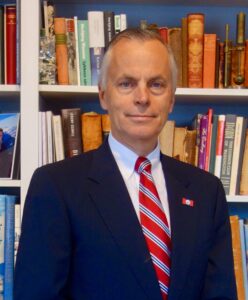 Ambassador Lawrence Butler devoted four decades as an American and international diplomat to deterrence, crisis management, conflict prevention, and promotion of human rights and democracy. He currently helps train U.S. Army units preparing to serve in Europe, the Middle East, and Korea. He served two decades on the front lines of Cold War diplomacy before playing pivotal roles in ending conflicts in the Balkans and Northern Ireland, and then engaged himself in the Middle East and Afghanistan. He exposed Communist Bulgaria’s ethnic repression of its Turkish population in 1985. He was the chief American diplomat in Belgrade, Yugoslavia during the Dayton/Bosnia peace process, and coordinated President Clinton’s involvement in the 1998 Northern Irish peace accord while at the White House as the NSC Director for Europe. He later implemented Macedonia’s 2001 peace agreement as U.S. Ambassador, and led the “civilian surge” for Iraq in 2007 as Deputy Assistant Secretary of State. In Sarajevo he advanced implementation of the Dayton Accords, serving as the international community Deputy High Representative.
Ambassador Lawrence Butler devoted four decades as an American and international diplomat to deterrence, crisis management, conflict prevention, and promotion of human rights and democracy. He currently helps train U.S. Army units preparing to serve in Europe, the Middle East, and Korea. He served two decades on the front lines of Cold War diplomacy before playing pivotal roles in ending conflicts in the Balkans and Northern Ireland, and then engaged himself in the Middle East and Afghanistan. He exposed Communist Bulgaria’s ethnic repression of its Turkish population in 1985. He was the chief American diplomat in Belgrade, Yugoslavia during the Dayton/Bosnia peace process, and coordinated President Clinton’s involvement in the 1998 Northern Irish peace accord while at the White House as the NSC Director for Europe. He later implemented Macedonia’s 2001 peace agreement as U.S. Ambassador, and led the “civilian surge” for Iraq in 2007 as Deputy Assistant Secretary of State. In Sarajevo he advanced implementation of the Dayton Accords, serving as the international community Deputy High Representative.
As the Foreign Policy Advisor to NATO’s Supreme Allied Commander, he helped shape military policy for Afghanistan and Kosovo. He then deployed to Iraq for a year with the commander of U.S. Forces dealing with shift of operational lead from the military to the Embassy. His most recent position was as the Civilian Deputy Commander of the headquarters for U.S. European Command, confronting the challenges of resurgent Russian aggression and the Syrian spillover.
Ambassador Butler is a Bowdoin College alum, and did graduate work at Michigan and Princeton.
Jack Goldsmith
June 10, 2024
Topic: The Decline of Congress in the Conduct of Foreign Affairs
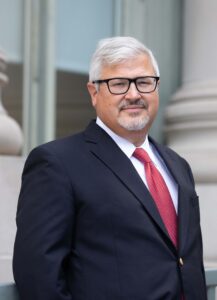 Jack Goldsmith is Learned Hand Professor of Law at Harvard University. He is the author, most recently, of After Trump: Reconstructing the Presidency and In Hoffa’s Shadow: A Stepfather, A Disappearance in Detroit, and My Search for the Truth, as well as of other books and articles on many topics related to presidential power, terrorism, national security, international law, and internet law. Before coming to Harvard, Goldsmith served as Assistant Attorney General, Office of Legal Counsel, from October 2003 through July 2004, and Special Counsel to the General Counsel to the Department of Defense from September 2002 through June 2003. Goldsmith taught at the University of Chicago Law School from 1997-2002, and at the University of Virginia Law School from 1994-1997. He holds a J.D. from Yale Law School, a B.A. and M.A. from Oxford University, and a B.A. from Washington & Lee University. He clerked for Supreme Court Justice Anthony M. Kennedy, Court of Appeals Judge J. Harvie Wilkinson, and Judge George Aldrich on the Iran-U.S. Claims Tribunal.
Jack Goldsmith is Learned Hand Professor of Law at Harvard University. He is the author, most recently, of After Trump: Reconstructing the Presidency and In Hoffa’s Shadow: A Stepfather, A Disappearance in Detroit, and My Search for the Truth, as well as of other books and articles on many topics related to presidential power, terrorism, national security, international law, and internet law. Before coming to Harvard, Goldsmith served as Assistant Attorney General, Office of Legal Counsel, from October 2003 through July 2004, and Special Counsel to the General Counsel to the Department of Defense from September 2002 through June 2003. Goldsmith taught at the University of Chicago Law School from 1997-2002, and at the University of Virginia Law School from 1994-1997. He holds a J.D. from Yale Law School, a B.A. and M.A. from Oxford University, and a B.A. from Washington & Lee University. He clerked for Supreme Court Justice Anthony M. Kennedy, Court of Appeals Judge J. Harvie Wilkinson, and Judge George Aldrich on the Iran-U.S. Claims Tribunal.
Robert Einhorn
May 20, 2024
Topic: Are We Heading Toward a World with Many Nuclear-armed States?
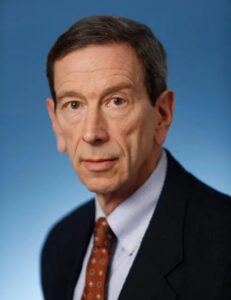 Robert Einhorn is a senior fellow in the Arms Control and Non-Proliferation Initiative and the Strobe Talbott Center for Security, Strategy, and Technology, both housed within the Foreign Policy program at Brookings. Einhorn focuses on arms control (U.S.-Russia and multilateral), nonproliferation and regional security issues (including Iran, the greater Middle East, South Asia, and Northeast Asia), and U.S. nuclear weapons policies and programs.
Robert Einhorn is a senior fellow in the Arms Control and Non-Proliferation Initiative and the Strobe Talbott Center for Security, Strategy, and Technology, both housed within the Foreign Policy program at Brookings. Einhorn focuses on arms control (U.S.-Russia and multilateral), nonproliferation and regional security issues (including Iran, the greater Middle East, South Asia, and Northeast Asia), and U.S. nuclear weapons policies and programs.
Before joining Brookings in May 2013, Einhorn served as the U.S. Department of State special advisor for nonproliferation and arms control, a position created by Secretary of State Hillary Clinton in 2009. In that capacity, he played a leading role in the formulation and execution of U.S. policy toward Iran’s nuclear program, both with respect to sanctions and negotiations between Iran and the P5+1 countries. He also helped shape the Obama administration’s overall approach to nonproliferation; supported nonproliferation goals through diplomatic contacts with China, Russia, and key non-aligned countries; and addressed nuclear security and strategic stability challenges in South Asia. He played a key role in the development of the 2010 Nuclear Posture Review and served as U.S. delegation head in negotiations with South Korea on a successor civil nuclear agreement.
Between 2001 and 2009, Einhorn was a senior advisor at the Center for Strategic and International Studies (CSIS), where he directed the Proliferation Prevention Program. Prior to joining CSIS, he was assistant secretary of state for nonproliferation from 1999 to 2001, deputy assistant secretary of state for political-military affairs from 1992 to 1999, and a member of the State Department policy planning staff from 1986 to 1992. Between 1972 and 1986, he held various positions at the U.S. Arms Control and Disarmament Agency (ACDA), including as ACDA’s representative to the strategic arms reduction talks with the Soviet Union. In 1984, he was an international affairs fellow at the Council on Foreign Relations.
Einhorn has written extensively in the area of arms control and nonproliferation. He authored “Negotiating from Strength: Leverage in U.S.-Soviet Arms Control Negotiations” (Praeger Publishers, 1984), co-edited “Protecting against the Spread of Nuclear, Biological, and Chemical Weapons: An Action Agenda for the Global Partnership” (Center for Strategic and International Studies, 2003), and “The Nuclear Tipping Point: Why States Reconsider their Nuclear Choices” (Brookings Institution Press, 2004), and published numerous articles in such journals as Survival, The National Interest, Foreign Policy, Arms Control Today, The Washington Quarterly, The Nonproliferation Review, and Yaderny Kontrol.
Einhorn holds a bachelor’s in government from Cornell University and a master’s in public affairs and international relations from the Woodrow Wilson School at Princeton University.
Matt Goodwin
May 6, 2024
Topic: Brexit, Trump, Le Pen and the Rise of National Populism
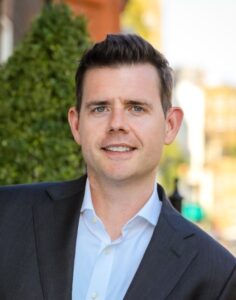 Matt Goodwin is an academic, bestselling author, pollster, and speaker known for his research on: politics, populism, elections, voting, public opinion, Brexit, Europe, academic freedom and more. He is Professor of Politics at Rutherford College, University of Kent, recently served as Senior Visiting Fellow at the Royal Institute of International Affairs, at Chatham House, Senior Fellow with the UK In a Changing Europe, Senior Fellow at the Legatum Institute, and Senior Advisor to the UK Education Committee. In 2022, Matt was appointed Social Mobility Commissioner.
Matt Goodwin is an academic, bestselling author, pollster, and speaker known for his research on: politics, populism, elections, voting, public opinion, Brexit, Europe, academic freedom and more. He is Professor of Politics at Rutherford College, University of Kent, recently served as Senior Visiting Fellow at the Royal Institute of International Affairs, at Chatham House, Senior Fellow with the UK In a Changing Europe, Senior Fellow at the Legatum Institute, and Senior Advisor to the UK Education Committee. In 2022, Matt was appointed Social Mobility Commissioner.
The author of six books, he wrote the No.2 Sunday Times bestseller Values, Voice, and Virtue: The New British Politics, and the Sunday Times bestseller, National Populism: The Revolt Against Liberal Democracy, which was translated into multiple languages and listed among the Financial Times and Times Literary Supplement as one of the books of the year. He is also co-author of the 2015 Political Book of the Year, Revolt on the Right, which was long-listed for the Orwell Prize and listed among the Financial Times and Guardian books of the year.
Goodwin has published dozens of academic studies and research reports on European politics and populism. He regularly writes for and appears in international media, including the BBC News, Financial Times, New York Times, and Politico. He also shares his views on his Substack, writing fortnightly newsletters and discussions with leading experts, thinkers, and writers.
Goodwin has consulted and given talks to more than 400 organizations, from the UK Prime Minister’s Office to the President of Germany, US State Department, European Commission, Google, Deutsche Bank, UBS, JP Morgan, Rothschild and Cie, Trilateral Commission, Goldman Sachs, Clifford Chance. Between 2011-2015, he sat on the UK government’s working group on tackling prejudice.
Goodwin holds a BA in Politics and Contemporary History, MA in Political Science, and PhD in Political Science. After finishing his doctorate, Matt joined the Institute for Political and Economic Governance at the University of Manchester where he was later awarded an Economic and Social Research Council (ESRC) Postdoctoral Fellowship. In 2015, he was appointed Professor of Politics at the University of Kent and was awarded an ESRC Senior Fellowship to examine Britain’s 2016 EU referendum. In 2018, he was named a European Young Leader. In 2019 he was seconded to the Royal Institute of International Affairs at Chatham House and in 2021 was appointed Director of the Centre for UK Prosperity at the Legatum Institute where he remains a Fellow, working on issues relating to academic freedom, levelling-up, and politics.
Ambassador Anne Hall
April 8, 2024
Topic: The Baltics: Lessons in Courage
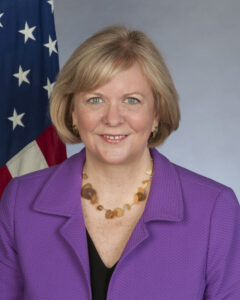 Anne Hall served as the U.S. Ambassador to the Republic of Lithuania from September 2016 until July 2019. Prior to that position she served as the Acting Principal Deputy Assistant Secretary of State for Oceans and International Environmental and Scientific Affairs.
Anne Hall served as the U.S. Ambassador to the Republic of Lithuania from September 2016 until July 2019. Prior to that position she served as the Acting Principal Deputy Assistant Secretary of State for Oceans and International Environmental and Scientific Affairs.
Ms. Hall was a career member of the senior Foreign Service and has broad experience in Europe. From August 2013 to July 2014 she served as Director of the Office of Central European Affairs in the Bureau of European and Eurasian Affairs. In that capacity she was responsible for managing relations with Austria, Bulgaria, the Czech Republic, Hungary, Lichtenstein, Poland, Romania, Slovakia, Slovenia and Switzerland. From 2010 to 2013 she served as Deputy Chief of Mission and an extended period as Charge d’Affairs at the American Embassy in Vilnius, Lithuania. From 2006 to 2009 Ms. Hall was Principal Officer and Consul General of the American Consulate General in Krakow, Poland.
Ms. Hall also served as the Senior Cyprus Country Officer in the Office of Southern European Affairs from 2003 to 2005, participating in negotiations in support of a Cyprus settlement. From 2001 to 2003 Ms. Hall served as the Country Officer for Norway and Denmark in the Office of Nordic and Baltic Affairs, during the lead-up to the Baltic states’ 2004 entry into NATO and the European Union.
Ms. Hall’s other Washington assignments include Special Assistant to the Secretary of State (1994-1995), the Executive Secretariat (1993-1994), and Special Assistant to the Principal Deputy Assistant Secretary for Consular Affairs. She also served overseas in China (1997-2000), Brazil (1989-1990) and Colombia (1988-1989).
She is the recipient of several Superior and Meritorious Honor Awards. In July 2009 she became the first American Consul General to be awarded the Knight’s Cross of the Order of Merit of the Republic of Poland. She speaks Lithuanian, Polish, Mandarin Chinese, Spanish and Portuguese. She graduated from the University of Maine and received master’s degrees from the University of Texas.
Ambassador Jake Walles
March 11, 2024
Topic: Conflict in the Middle East: Implications for U.S. interests
Jake Walles is a nonresident senior fellow in the Middle East Program at the Carnegie Endowment for International Peace, where he focuses on Israeli-Palestinian issues, Tunisia, and counterterrorism. He was a foreign service officer with the U.S. Department of State for more than 35 years, serving as the U.S. ambassador to Tunisia from 2012 to 2015 and as consul general and chief of mission in Jerusalem from 2005 to 2009. Walles also served as the Director of the Office of Israel and Palestinian Affairs from 1998 to 2001 and as Deputy Principal Officer at the U.S. Consulate General in Jerusalem from 1996-1998.
Other assignments included: Deputy Chief of Mission in Athens, First Secretary for Economic Affairs in Tel Aviv, Vice Consul in Amsterdam, and Special Assistant to the Under Secretary for Economic Affairs in Washington. Walles also served as senior adviser in the State Department’s Bureau of Counterterrorism from 2015 until his retirement in 2017.
During his long career at the State Department, Walles was actively involved in Middle East peace negotiations beginning with the Madrid Middle East Peace Conference in 1991 and continuing through the Obama administration. He was the recipient of the State Department’s Distinguished Honor Award in 2016 for his contributions to U.S. national security policy. He also was the recipient of Presidential Meritorious Rank Awards in 2007 and 2012, and the Department’s Superior Honor Award in 2001 and 1994 for his work in promoting peace in the Middle East.
Heather Cox Richardson
Saturday, February 10, 6PM at the Camden Opera House
Topic: Democracy Awakening
Please note: this event is open only to Forum members and guests.
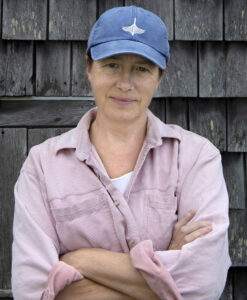 Heather Cox Richardson is Professor of History at Boston College. She has written about the Civil War, Reconstruction, the Gilded Age, and the American West in award-winning books whose subjects stretch from the European settlement of the North American continent to the history of the Republican Party through the Trump administration. Her work has appeared in the Washington Post, the New York Times, and The Guardian, among other outlets. She is the cohost of the Vox Media podcast, Now & Then.
Heather Cox Richardson is Professor of History at Boston College. She has written about the Civil War, Reconstruction, the Gilded Age, and the American West in award-winning books whose subjects stretch from the European settlement of the North American continent to the history of the Republican Party through the Trump administration. Her work has appeared in the Washington Post, the New York Times, and The Guardian, among other outlets. She is the cohost of the Vox Media podcast, Now & Then.
In her compelling new book, DEMOCRACY AWAKENING: Notes on the State of America [Viking-2024], Richardson explains how a small group of wealthy people have made war on American ideals, leading us down a dangerous path to authoritarianism. By weaponizing language and promoting a false history, they have created a disaffected population and then promised to recreate an imagined past where those people could feel important again. Richardson argues that taking our country back starts by remembering the elements of the nation’s true history that marginalized Americans have always upheld – their dedication has sustained our democracy in the past and can be a roadmap for our future.
Ambassador Ronald Lehman
January 8, 2024
Topic: Technology and the End of the Cold War -- and the End of the End of the Cold War
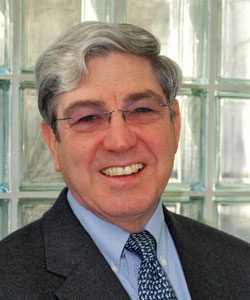 The Honorable Ronald F. Lehman II is the Counselor to the Director of Lawrence Livermore National Laboratory (LLNL). For many years, he was the Director of the Center for Global Security Research at LLNL.
The Honorable Ronald F. Lehman II is the Counselor to the Director of Lawrence Livermore National Laboratory (LLNL). For many years, he was the Director of the Center for Global Security Research at LLNL.
Ambassador Lehman has been the Director of the Arms Control and Disarmament Agency, the Assistant Secretary for International Security Policy in the Department of Defense, Ambassador and Chief Negotiator on Strategic Offensive Arms (START I), and Deputy Assistant to the President for National Security Affairs. He has also served on the National Security Council staff as a Senior Director, in the Pentagon as Deputy Assistant Secretary, on the Senior Professional Staff of the U.S. Senate Armed Services Committee, and served in Vietnam as a commissioned officer in the United States Army. In the past he has served as the Chair of the Department of Defense Threat Reduction Advisory Committee (TRAC), on the Presidential Advisory Board on Proliferation Policy, on the State Department’s International Security Advisory Board, as chair of the NATO High Level Group, on the governing board of the U.S. Institute of Peace, and as a U.S. representative to a number of United Nations disarmament and review conferences.
Ambassador Lehman co-chaired (with David Franz) the National Academy of Sciences’ study on the future of Cooperative Threat Reduction and formerly co-chaired (with Ash Carter) the Policy Advisory Group on nonproliferation for the U.S. Senate Foreign Relations Committee. He was on the Defense Science Board Task Forces on Globalization and Security, on Tritium, on Global Strike, and on Defense against Biological Weapons. He is served on the National Research Council Committee on U.S. Air Force Strategic Deterrence Military Capabilities in the 21st Century and served on the National Research Council’s Committee on Science, Technology, and Health Aspects of the Foreign Policy Agenda of the United States and on its Committee on Alternative Technologies to Replace Anti-Personnel Landmines. He was detailed to the Administrator of the National Nuclear Security Administration as counterterrorism coordinator after the September 11, 2001, attacks. For the Department of Energy he was the U.S.-Snezhinsk Working Group Co-Chair for the Joint Russian-American Steering Committee on the Nuclear Cities Initiative. He served on the advisory panel for USSTRATCOM’s Global Innovation and Strategy Center. He was on the Council on Foreign Relations Independent Task Force on the U.S. Nuclear Posture. He was a Public Affairs Fellow at the Hoover Institution on War, Revolution, and Peace at Stanford University and an Adjunct Professor at Georgetown University.
He received his Ph.D. from Claremont Graduate University (1975) and his B.A. from Claremont McKenna College (1968).
